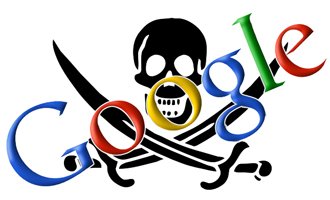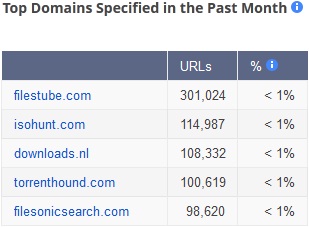 The angry Google gods are pissed off once more… The omnipotent internet lords have decided to discharge a new type of penalty upon possessor earthlings (AKA “site owners”) which have sinned by avarice and coveted other possessor’s belongings (AKA “copyright infringement”).
The angry Google gods are pissed off once more… The omnipotent internet lords have decided to discharge a new type of penalty upon possessor earthlings (AKA “site owners”) which have sinned by avarice and coveted other possessor’s belongings (AKA “copyright infringement”).
Google’s Amit Singhal (who basically runs the whole Google search show) announced on Friday that starting this week (from August 13th) Google would implement a new signal into the search algorithm that designated to lower the rankings of websites which have frequently infringed the copyrights of others.
What does it means exactly? If a certain number of legitimate content removal requests is being upheld against a website, then Google will devalue the search rankings of this site AS A WHOLE. It still isn’t clear at this point how much requests precisely will trigger this signal but on the post Google references to the Copyright Removal Requests page of its Transparency Report.
Targeting File Sharing Sites?
That page specifies the top copyright infringing domains and you can see a more elaborated infringement overview on this page. Currently, ALL of the top copyright infringing domains are file sharing websites so it is pretty obvious that they are the real target of this update.

Actually, it isn’t so surprising that Google begins to hunt this sort of websites. The company has been under a lot of pressure from Hollywood to filter file sharing websites which illegally pirating content for a long time. However, this step is the first significant move against content pirates by Google which directly demotes the pirates’ rankings and aligns with Hollywood’s interests.
If the impact and the eventual effect of this update will be similar to other prior Google’s filtering updates (such as the Panda or the Penguin), affected websites will get hurt severely and even would be wiped out of rankings almost completely. If indeed so, Hollywood should be satisfied.
Scraping Sites and User-Generated Sites
But even though it appears that the main mark of the update are file sharing pirates, it will likely to hit other websites as well. For example, content scrapers should embrace themselves for a strike too. On these sort of sites there’s mostly copied content and their pages are vastly being requested to be removed from Google’s index by the original content creators.
I remember that a few years ago I had to deal myself with such a scraping site which copied my site’s content and in many cases even outranked my original pages! I was filing for hours over hours detailed complaints to Google so its pages will be removed. Perhaps if this update would have been existed back then, it would have saved me a lot of time.
And what about user-generated content sites such as Twitter, Facebook, Pinterest and YouTube? There are clearly a lot of removal requests for those websites, so will Google penalize them too? Google states that there are considering a few more factors before applying a penalty on a website:
We’re treating YouTube like any other site in search rankings. That said, we don’t expect this change to demote results for popular user-generated content sites.
Again, it isn’t quite clear what those factors actually are, but we can speculate that it relates to the overall authoritativeness of the site which driven by all other search signals.
The “Valid” Problem
In theory at least, this update suppose to deliver better quality results as it surfaces original content creators and demotes infringing content pirates. However, we should wait and see if the practical execution will be effective and accurate enough to hit that goal.
There are already concerns about “negative content removal requests attacks” which might wrongfully damage legit sites, an issue that Google MUST address too. Singhal refers on the post to valid copyright removal notices and I hope that “valid” means a complaint that was also found genuine and not a one that just been filed validly.
I do expect that the Google guys have thought about that too and provides a sufficient detection for such unlawful attacks.
Update: You can read my first impressions of the Google DMCA update effects.